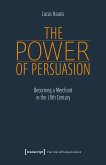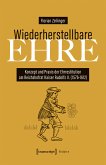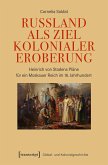The Arab spring, protest movements in the EU, Russia, Turkey or elsewhere, are often labeled as twitter-revolutions. A crucial role is attributed to the new media, coverage of events abroad and ensuing mutual reactions. With the dissemination of print, revolts in early-modern times faced the challenge of a similar media-revolution. This influenced the very face of the events that could become full-fledged propaganda wars once the insurgents had won access to the printing press. But it also had an impact on revolt-narratives. Governments severely persecuted dissident views in such delicate issues as revolts. Observers abroad had no such divided loyalties and were freer to reflect upon the events. Therefore, the book focuses mainly on representations of revolts across borders.
Dieser Download kann aus rechtlichen Gründen nur mit Rechnungsadresse in A, D ausgeliefert werden.









